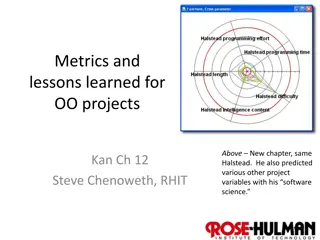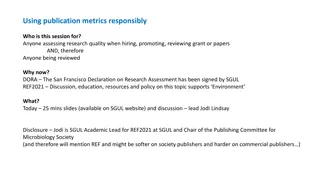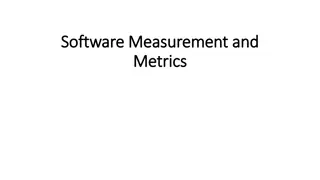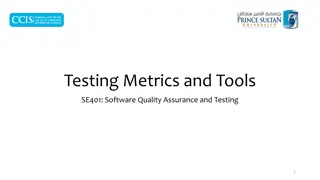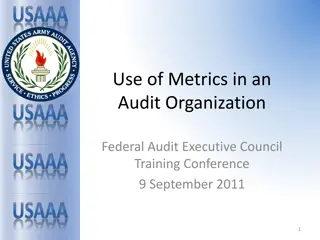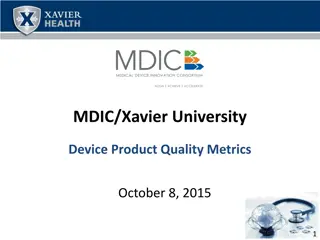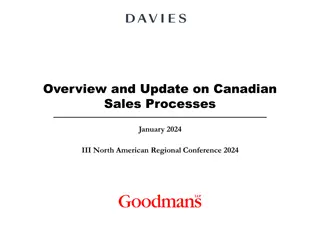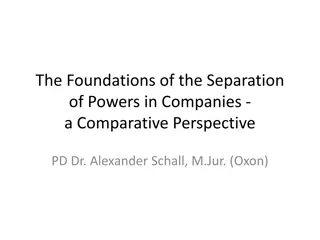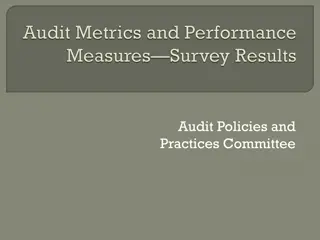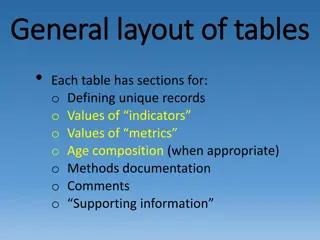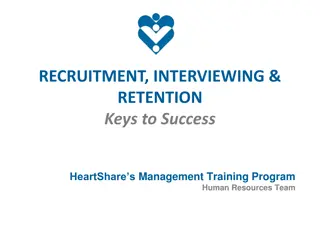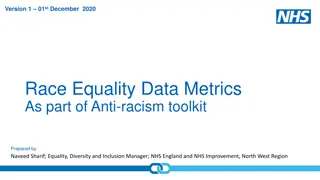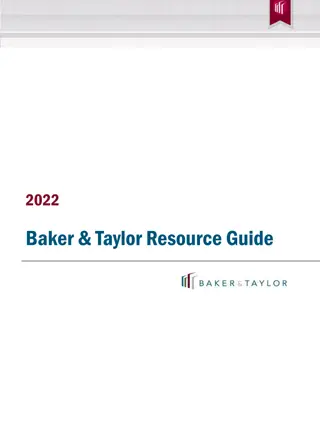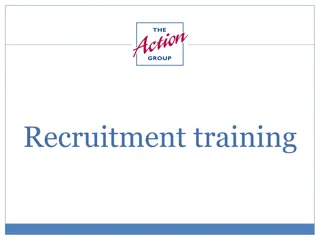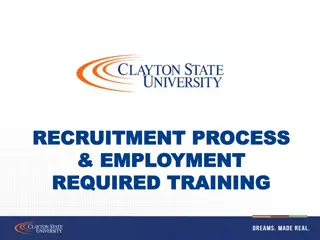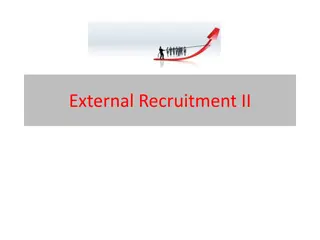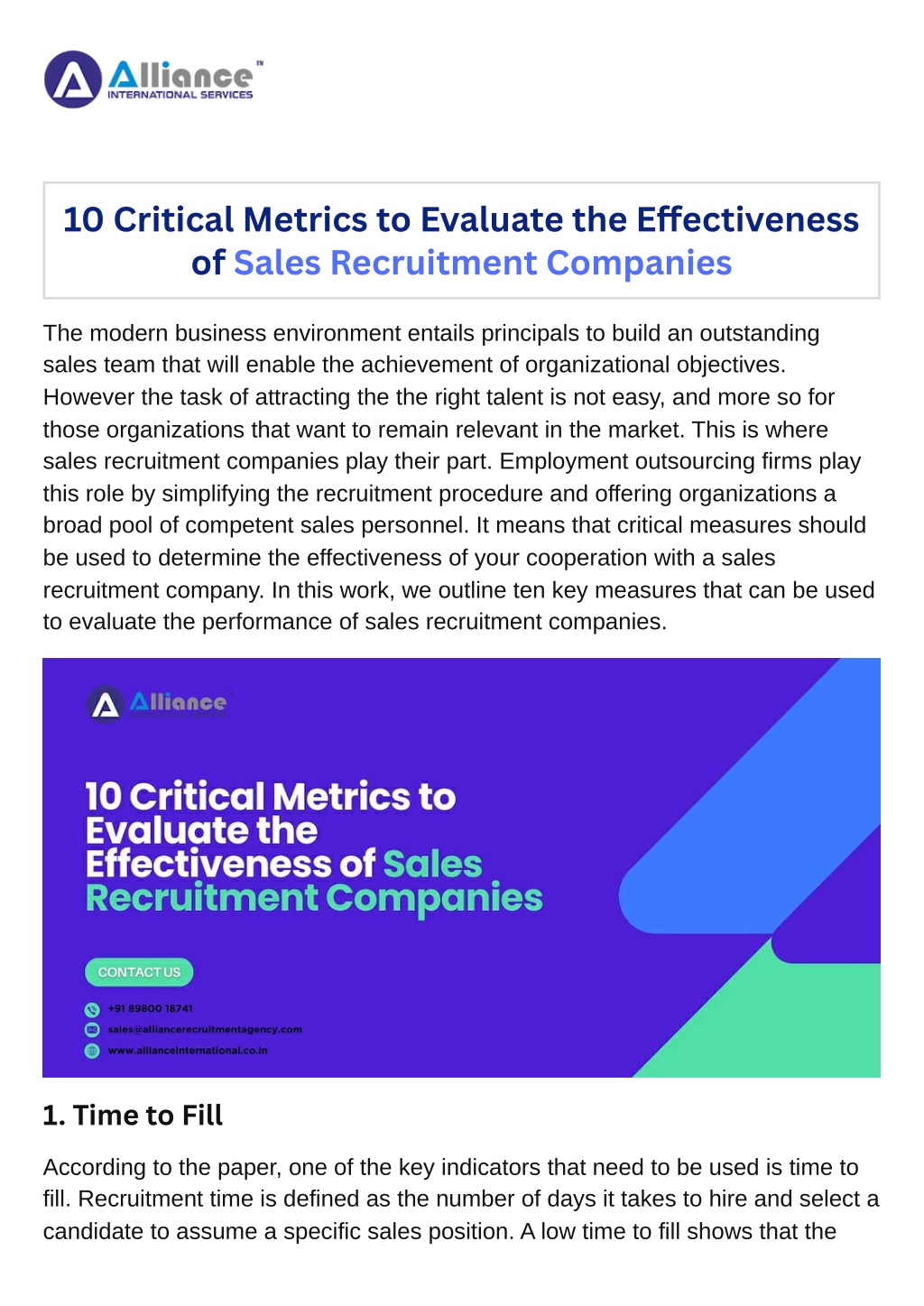
10 Critical Metrics to Evaluate the Effectiveness of Sales Recruitment Companies
Evaluate the 10 essential metrics that measure the effectiveness of sales recruitment companies, helping businesses improve hiring strategies and build top-performing sales teams. For more information, visit: /sales-recruitment-agencies.
Download Presentation

Please find below an Image/Link to download the presentation.
The content on the website is provided AS IS for your information and personal use only. It may not be sold, licensed, or shared on other websites without obtaining consent from the author. Download presentation by click this link. If you encounter any issues during the download, it is possible that the publisher has removed the file from their server.
E N D
Presentation Transcript
10 Critical Metrics to Evaluate the E?ectiveness of Sales Recruitment Companies The modern business environment entails principals to build an outstanding sales team that will enable the achievement of organizational objectives. However the task of attracting the the right talent is not easy, and more so for those organizations that want to remain relevant in the market. This is where sales recruitment companies play their part. Employment outsourcing firms play this role by simplifying the recruitment procedure and offering organizations a broad pool of competent sales personnel. It means that critical measures should be used to determine the effectiveness of your cooperation with a sales recruitment company. In this work, we outline ten key measures that can be used to evaluate the performance of sales recruitment companies. 1. Time to Fill According to the paper, one of the key indicators that need to be used is time to fill. Recruitment time is defined as the number of days it takes to hire and select a candidate to assume a specific sales position. A low time to fill shows that the
sales recruitment company takes less time to source and present suitable candidates to the employer. Essentially, this should match your company s hiring calendar and the degree of desperation to fill the job. Why it Matters: Long hiring periods are inimical to the growth of an organization as business opportunities are lost while overworking the remaining staff. By evaluating this metric it becomes easier for the recruitment company to swiftly meet the hiring needs of your organization. 2. Quality of Hire Measuring the quality of hire is important in determining the efficiency of sales recruitment companies. This metric measures new hires' contribution to sales performance, organisational culture fit, and job satisfaction levels. Sometimes it is effective to give managers a survey to fill in about the new employee s performance after some time, say 90 days. Why it Matters: A high quality of hire reflects the recruitment company s ability to understand your specific needs and select candidates who not only meet the technical requirements but also align with your company s culture. 3. Candidate Pipeline Quality Candidate quality is, therefore, defined as the quality of the candidates provided within the sales recruitment agency. The efficiency of a recruitment firm consists in offering the submission of a large number of high-quality applicants, matching the particular skill and experience profile your organisation has set. The quality of the pipeline can be determined by rating the backgrounds, qualifications, and experience of the candidates. Why it Matters: A good pool of candidates helps to exclude long-time gaps in a vacancy and boosts the general efficiency of the staff selection. 4. O?er Acceptance Rate The offer acceptance rate is the ratio of the total number of offers-to-realized ratios that indicate how many of these offers have been accepted by candidates. A high acceptance rate means that the sales recruitment company is doing a good job of selling the position and your organization to the candidates.
Why it Matters: If the offer acceptance rate is low it could be a sign that candidates expect more than what job descriptions can provide, the compensation offered by the company, or even the perception that prospective employees hold about the company. By evaluating this metric, it is possible to be certain that the process of recruitment is marketed properly. 5. Retention Rate The retention rate ascertains the number of new joinery who still attend work within a given duration usually one year. This metric is useful when trying to assess the sales recruitment company s success for extended periods to determine whether its actions are helpful in the prolonged process of this kind of recruitment. If a firm hires salespersons frequently, then the recruitment agency has a good understanding of your organization s personality and the traits that breed success in the sales team. Why it Matters: Overall, high turnover has its effects on the turnover cost and productivity to degrade morale. Measuring the retention rates enables the assessment of whether the recruitment company is offering the right talent to the organization. 6. Candidate Experience Experience should always be evaluated throughout the whole process of recruitment. Prior experience is also observed to boost the company s impression a candidate has towards the opportunity or even if the candidate does not get hired. If feedback from the candidates is sought regarding the experience that they have undergone they would be target areas that show anomalies. Why it Matters: Candidate experience is very important since its strengthens your company s image and increases the chances of more acceptances and overall quality of talent that are attracted, therefore improving the sales recruitment process. 7. Recruitment Cost Ratio (RCR) The recruitment cost ratio is the ratio of cost spent on recruiting both the company s own cost for hiring plus the cost paid to the sales recruitment company to the total hiring cost of new employees. Heaven Recruitment Agency
successfully applied this formula to evaluate the cost of hiring employees through a recruitment agency as opposed to the direct hiring of employees. Why it Matters: Knowledge of RCR is helpful when a business is contemplating the selection procedure and the amount of money that they have to spend on recruiting. It is useful in an organisation because it prevents tangible and intangible costs of employing candidates from going high without receiving proportionate value out of the employees in return. 8. Diversity Metrics Demographic Diversity measures the success of the sales recruitment company in providing candidates of the required diverse demographic characteristics. Record keeping regarding diversity as a matter of gender, ethnicity, and other aspects is all important to the conservation of diversity in the workplace. Employment agencies must ensure that in their sourcing they must embrace diversity and inclusion. Why it Matters: More employment of a diverse sales team means that the employees will not be unanimous in their thinking thus enhancing creativity and better decision-making processes. Diversity analysis presents how recruitment objectives are being done taking into account the desired diversity of the company. 9. Sourcing Channel E?ectiveness An evaluation of how different sourcing methods employed by sales recruitment companies can be the source of the best performers. This could be through circulating a job advert online via a job search website, through social media platforms, referral by an employee among others. To know which specific sources provide the most qualified applicants, the success of each channel is monitored. Why it Matters: Understanding the effectiveness of sourcing channels allows companies to refine their recruitment strategies and allocate resources to the most productive methods, optimizing the hiring process. 10. Feedback from Hiring Managers Collecting feedback from hiring managers about their experiences with the sales recruitment company can provide valuable insights into the effectiveness of the partnership. This feedback should include assessments of the candidates
presented, communication efficiency, and overall satisfaction with the recruitment process. Why it Matters: Regular feedback from hiring managers ensures alignment between the recruitment company s efforts and the specific needs of the business. This ongoing communication fosters collaboration and continuous improvement in the recruitment process. Conclusion Evaluating the effectiveness of sales recruitment companies is essential for ensuring that your organization secures top talent. By focusing on these ten critical metrics time to fill, quality of hire, candidate pipeline quality, offer acceptance rate, retention rate, candidate experience, recruitment cost ratio, diversity metrics, sourcing channel effectiveness, and feedback from hiring managers you can gain valuable insights into the performance of your recruitment partner. Utilizing these metrics not only helps you assess the current partnership but also fosters a proactive approach to improving your recruitment strategies, ultimately driving business success. In an era where talent is key to competitive advantage, understanding and leveraging these metrics is essential for building a high- performing sales team. At Alliance International, we specialize in providing tailored recruitment solutions that meet your unique business needs. Our expertise in the industry ensures that you have access to the best talent available, aligned with your organizational goals. Ready to elevate your recruitment strategy? Contact us today to discover how Alliance International can help you build an outstanding sales team. View source: https://itrecruitmentagency.tech.blog/2024/10/01/10-critical- metrics-to-evaluate-the-effectiveness-of-sales-recruitment-companies/.
sales@alliancerecruitmentagency.com www.allianceinternational.co.in

